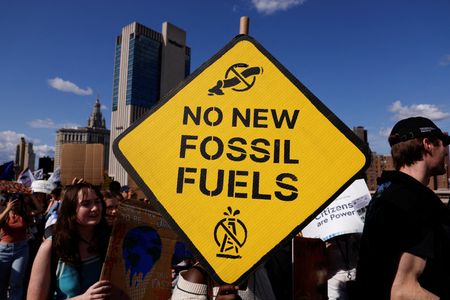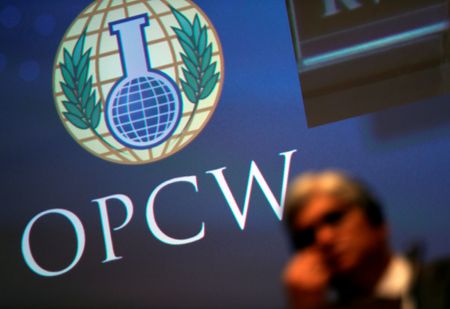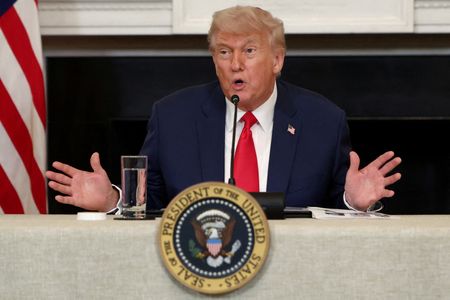By Emma Farge
GENEVA (Reuters) -The U.N. Human Rights Council passed a motion on climate change and human rights on Tuesday after the Marshall Islands withdrew a divisive amendment that called on states to recommit to a phase-out of fossil fuels.
The motion calling on countries “to contribute to the global efforts” against climate change passed by consensus and follows the council in 2021 recognising access to a clean and healthy environment as a fundamental right.
The original language of the motion had exposed divisions among the 47 members after the Marshall Islands, one of the countries most vulnerable to rising sea levels, made an amendment to the motion to mention exiting fossil fuels as agreed by states at the COP28 climate summit in December 2023.
“My country – like many of our Pacific neighbours – places a high premium on collaboration, dialogue and consensus and we were willing to recognise this by withdrawing our amendment,” Doreen Debrum, ambassador of the Marshall Islands to the U.N. in Geneva, told the council.
Instead, the motion referred to “the imperative of defossilizing our economies” in a footnote – allowing the motion to pass without being put to a vote in which the outcome had not been certain.
The council’s decisions are not legally binding but help shape global standards.
Oil producing countries including Saudi Arabia and voting member Kuwait had earlier voiced opposition to the phrasing in negotiations, according to three diplomats. Riyadh called instead for “multiple pathways” to reduce emissions.
There was no immediate response to Reuters’ requests for comment from Saudi Arabia’s international media offices or the foreign ministry of Kuwait. Their diplomatic missions in Geneva did not immediately respond.
Sébastien Duyck, human rights and climate campaign manager at the Center for International Environmental Law, said: “We deeply regret its (the council’s) continued failure to explicitly call for an equitable phase-out of fossil fuels — the root cause of the crisis.”
The move comes as leaders on climate action, such as the European Union, face criticism from campaigners that they are scaling back policies even as they deal with the consequences of a blistering early summer heatwave.
The U.S., which has withdrawn from climate action under President Donald Trump, did not participate formally in the vote after disengaging with the council this year.
(Reporting by Emma Farge;Editing by Alison Williams)










